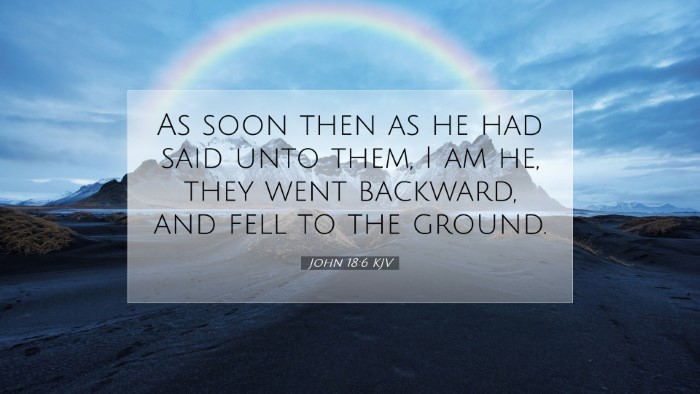Old Testament
Genesis Exodus Leviticus Numbers Deuteronomy Joshua Judges Ruth 1 Samuel 2 Samuel 1 Kings 2 Kings 1 Chronicles 2 Chronicles Ezra Nehemiah Esther Job Psalms Proverbs Ecclesiastes Song of Solomon Isaiah Jeremiah Lamentations Ezekiel Daniel Hosea Joel Amos Obadiah Jonah Micah Nahum Habakkuk Zephaniah Haggai Zechariah MalachiVerse
John 18:1 John 18:2 John 18:3 John 18:4 John 18:5 John 18:6 John 18:7 John 18:8 John 18:9 John 18:10 John 18:11 John 18:12 John 18:13 John 18:14 John 18:15 John 18:16 John 18:17 John 18:18 John 18:19 John 18:20 John 18:21 John 18:22 John 18:23 John 18:24 John 18:25 John 18:26 John 18:27 John 18:28 John 18:29 John 18:30 John 18:31 John 18:32 John 18:33 John 18:34 John 18:35 John 18:36 John 18:37 John 18:38 John 18:39 John 18:40

